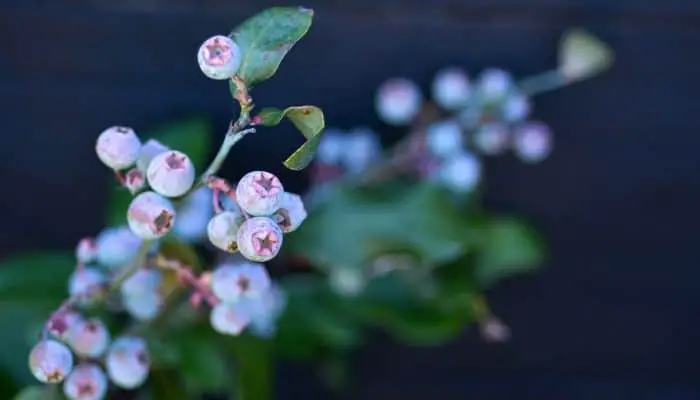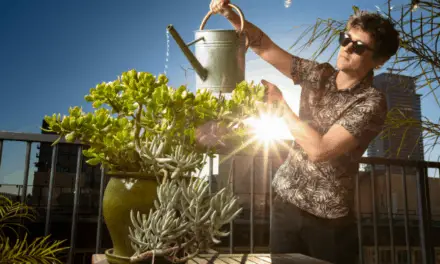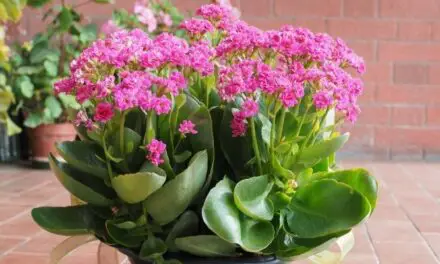Blueberries are a wonderful fruit to have and it’s surprisingly easy to grow your own.
They are hardy and easy to care for but if you don’t pay special attention to a couple of their specific needs, you may struggle to grow your own.
Table of Contents
Why Is My Blueberry Plant Not Growing?

Your blueberry plants are not growing because they have either been planted in soil that is too alkaline, they have been watered with hard tap water, over-fertilized, underwatered, or not pruned.
It’s also worth remembering that blueberries are slow-growing plants and will not visibly grow in the space of a few weeks or even months.
It might be a good while before a plant grows large enough to fruit.
Alternatively, the conditions may need to be improved to encourage your blueberry plant to grow more.
Blueberry Plants Are Slow Growing
So, it may not be that your plant is not growing – it might just be growing a lot slower than what you are expecting.
How fast do blueberry bushes grow?
Blueberries can take up to ten years to reach their full capacity in terms of crop production, although they will start producing berries long before that.
Depending on the variety, most blueberry bushes will start fruiting in their third or fourth year.
That means if you were hoping for your blueberry plant to get large and fruit in only a year or two after planting it, you’ll be unlikely to see that.
You will need to be patient after planting a young blueberry and give it the time it needs to grow into a healthy plant.
However, time isn’t all a blueberry needs; they are relatively fussy plants, so you must check that you are meeting all of their requirements if you want to see your plant grow quickly.
Do not do things like pouring on a lot of fertilizer in the hopes that this will speed up the process; it’s more likely to just kill off the plant!
Related Article: Why Is My Spider Plant Dying After Repotting? (Explained)
You Are Giving Your Blueberry Plant Too Much Fertilizer
You don’t want to be feeding your blueberry with animal matter such as manure; this will burn the plant’s roots and either hamper its growth or cause it to die entirely.
Instead, choose ammonium-rich fertilizers that will feed the plant.
In the early years, do not provide a large boost of fertilizer.
Less can be more in these cases, so halve the recommended doses of your chosen fertilizer, and use a reduced amount even in the third year.
It is better not to overwhelm your plant with too much food all at once; this will not make it grow more quickly!
Some growers recommend not fertilizing at all for the first year because the roots may be more vulnerable.
The plant should be able to get what food it needs from the potting medium and is unlikely to require more.
Don’t fall into the trap of thinking lots of food will equal lots of growth.
Beware of using espoma soil acidifiers containing aluminum sulfate.
These can be toxic to blueberries in larger doses.
Try using water-soluble soil sulfur or iron sulfate.
There Isn’t Enough Acidity In The Soil
Blueberry plants like very acidic soil to grow in.
The pH should be between 4.0 and 5.5, and anything greater will result in a plant that doesn’t grow much, if at all.
Most people choose to grow blueberries in containers for this reason.
If your blueberry plant is buried in the ground, consider doing a test to check the pH.
If you find it’s too alkaline, you’ll need to add acid to the soil, but bear in mind that you will have to do this repeatedly to keep the plant happy.
You can amend your garden soil by adding organic soil acidifiers or sulphur chips a few months before planting.
Just don’t use any manure, as it is too alkaline for blueberry bushes.
The acid may wash away over time and could damage your other plants – which is why containers or raised beds are a good choice.
You can fill raised beds with an acidic potting mix, such as Ericaceous Compost.
But planting your blueberries in large pots will be a lot cheaper.
Consider adding used coffee grounds.
It helps to acidify the soil and caffeine naturally deters many plant pests.
Use around 4 or 5 cups of coffee grounds per bush each growing season.
Spread it on top of the ground and around the plant, mixing it into the top couple of inches of soil.
Watering Your Blueberry Plants With Hard Tap Water
It might be that the tap water you are watering your blueberries with is too alkaline.
Find out the pH of your tap water.
You may be able to find out by searching online for your local authority’s water test results.
If your tap water is not high enough in acidity, it might be stunting the growth of your blueberry plants.
If your tap water is low in acidity, add about 2-4 tablespoons of vinegar per gallon of tap water and this should make the water much more suitable for your blueberry plants.
Alternatively, try to collect rainwater and use only that to water your plants.
You Didn’t Break Up The Root Ball
If you have potted other plants, you may be familiar with the idea of breaking up the roots when you take them out of one container and put them into another.
This encourages the root mat to spread out and break into the new soil, rather than remaining in the shape and bounds of the original pot (even once the pot is gone).
Perhaps when planting your blueberry bush, you were in a hurry, or you were afraid of hurting it.
You didn’t break the roots up properly, and now your blueberry is essentially behaving as though it is growing in a small pot still.
The plant above the surface won’t really grow any bigger in this scenario because it won’t be getting enough water to support its growth.
To correct this, you may need to dig your blueberry plant back out.
If it has stayed within its original root ball, this should be easy to do.
Cut up or break up the roots to encourage them to spread, and then replant them and water them well to help the root hairs settle into the soil.
Hopefully, you will see your plant branch out and get bigger after this.
Always break up the root ball when planting!
They Are Getting Too Little Moisture
Even with a spread-out root ball, blueberries do not have deep roots, so they can dry out easily.
Thirsty blueberries will not grow well.
You need to make sure they are getting enough to drink, and it is a good idea to mulch around your blueberry plants to help trap moisture in the ground.
Putting down mulch will reduce the need to water and should make sure your plant has access to a drink whenever it wants it.
This may help to encourage plenty of growth and keep the plant happy.
It will also reduce the competition of weeds that may otherwise steal the plant’s nutrients and water.
You’re Not Cross-Pollinating Your Blueberry Plants
Most varieties of blueberries are self-fertile, so one bush should grow fine on its own.
But, you will get better growing plants and much better pollination if you allow your blueberries to cross-pollinate.
Try to plant at least two different varieties of blueberries together.
You’re Not Protecting Your Blueberry Plants From Frost
Any late frosts or sudden temperature drops can do a lot of damage to your blueberry plants and stop them from growing properly.
Keep an eye on the weather and if there are any late frosts on the way cover your blueberry plants with a horticultural fleece or some other type of covering.
You Didn’t Prune Your Blueberry Bushes
Blueberry plants don’t need much pruning but if you don’t prune them at all, they will not grow as well as they could.
For the first couple of years, you should prevent fruiting by removing individual flower buds and cutting off any weak or spindly growth.
Prune lightly until the plants are at least 3 years old.
As plants get older be sure to cut away any dead stems or dead stem tips and remove stems to thin out any overcrowded branches.
To avoid leggy bushes with no berries or leaves on the bottom of the plant, aim to remove about one-quarter of the oldest branches from your blueberry bushed each year.
Try to prune in mid to late winter.
Final Thoughts
Blueberry bushes are, by their nature, slow-growing, so you need to be patient and give them plenty of time to grow.
However, if you are sure that your blueberry is not growing as fast as it should be, check that its soil is acidic, that its roots are spreading, and that it has enough moisture.
And be careful not to over-fertilize!




